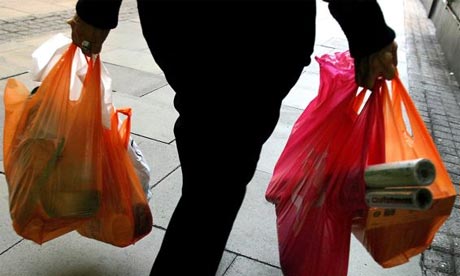 Starting Monday, San Francisco joins several other cities in California to ban plastic bags in retail stores, and charging 10 cents for each paper bags.
Starting Monday, San Francisco joins several other cities in California to ban plastic bags in retail stores, and charging 10 cents for each paper bags.
Any stores found violating this law could be fined up to $500 for each violation.
San Francisco becomes another city in California to implement the policy of banning plastic bags, which is intended to make people think about the wastefulness of single-use products, and to protect the bay from plastic wastes.
Nothing is done without meeting challenges; many plastic bag companies as well as some retail stores opposed the ban and the bag charge.
The plastic bag companies argue that plastic bags can sometimes be better than reusable bags, like handling hot food from restaurants. Reusable bags can harbor bacteria if not washed frequently. And some high end retailers argue that it is silly to ask their customers to pay 10 cents more for a bag when they’ve just spent thousands of dollars at their stores.
No matter what the opposition argues, the law is in effect starting October 1st, so shoppers should prepare containers to carry their groceries or make a one-time investment in some reusable bags if they don’t want to pay extra for bags.
A certain degree of plastic bag banning is happening across the world, whenever it is banning the plastic bags all together or charging customers money for a bag, it is great to see governments stepping up to reduce waste and protect the planet. But whatever the law dictates, it is more important for all the people to understand the purpose of it and follow it willingly.
So where will the ban happen next? Will New York be next in line for it?
You can read more about the ban on the New York Times published on September 28, and the article on Huffington Post on September 13.
And you can help by signing one of the two petitions to ban plastic bag in New York City.




